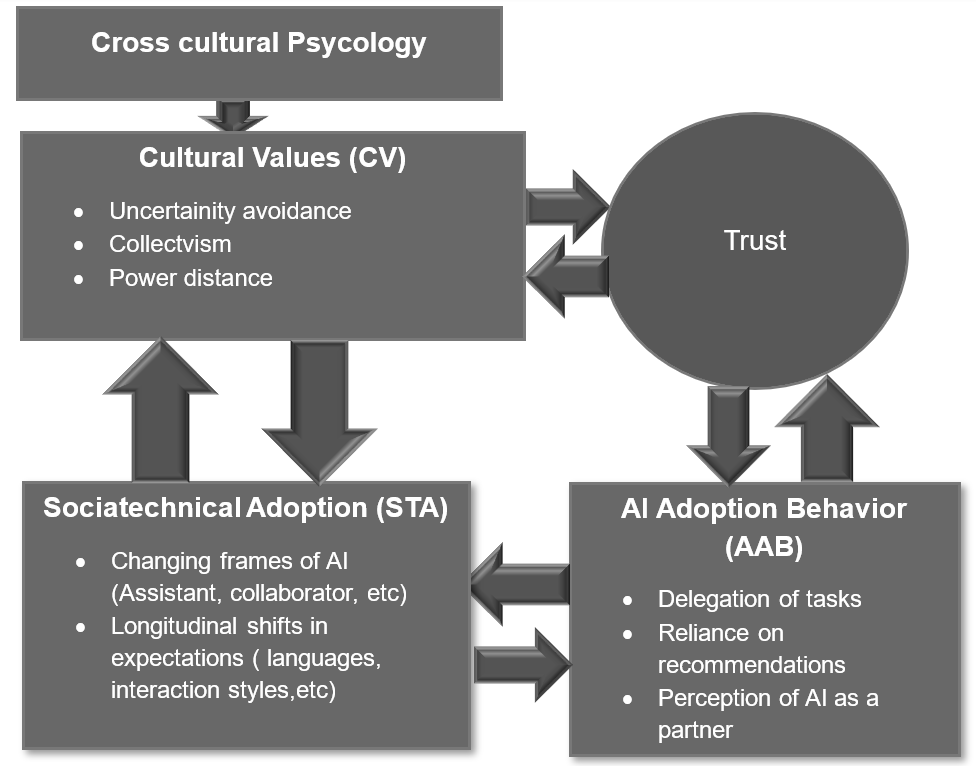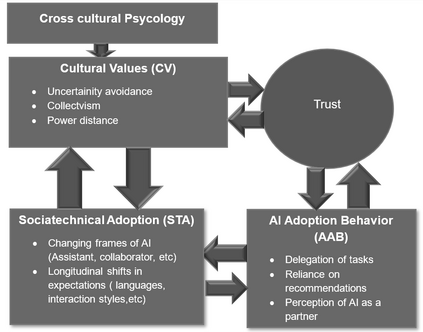The swift diffusion of artificial intelligence (AI) raises critical questions about how cultural contexts shape adoption patterns and their consequences for human daily life. This study investigates the cultural dimensions of AI adoption and their influence on cognitive strategies across nine national contexts in Europe, Africa, Asia, and South America. Drawing on survey data from a diverse pilot sample (n = 21) and guided by cross-cultural psychology, digital ethics, and sociotechnical systems theory, we examine how demographic variables (age, gender, professional role) and cultural orientations (language, values, and institutional exposure) mediate perceptions of trust, ethical acceptability, and reliance on AI. Results reveal two key findings: First, cultural factors, particularly language and age, significantly affect AI adoption and perceptions of reliability with older participants reporting higher engagement with AI for educational purposes. Second, ethical judgment about AI use varied across domains, with professional contexts normalizing its role as a pragmatic collaborator while academic settings emphasized risks of plagiarism. These findings extend prior research on culture and technology adoption by demonstrating that AI use is neither universal nor neutral but culturally contingent, domain-specific, and ethically situated. The study highlights implications for AI use in education, professional practice, and global technology policy, pointing at actions that enable usage of AI in a way that is both culturally adaptive and ethically robust.
翻译:暂无翻译







